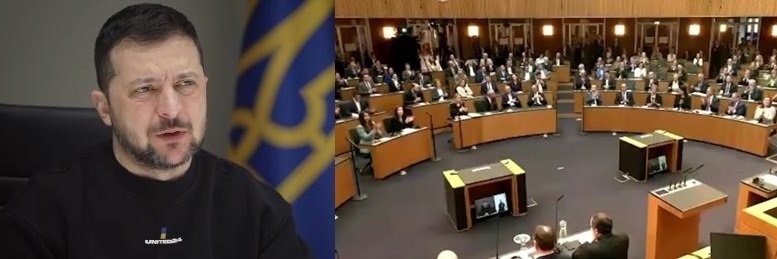Vienna, March 31 – More than 20 far-right Austrian MPs walked out of Parliament during a virtual address by Ukrainian President Volodymyr Zelensky, arguing that the latter’s speech violated Vienna’s “permanent neutrality” status.
Austria’s “permanent neutrality” has been part of its constitution since 1955. The law states that “Austria will never in the future accede to any military alliances nor permit the establishment of military bases of foreign states on her territory”, reports the BBC.
In his address on Thursday which marked the 400th day of Russia’s ongoing war, Zelensky emphasised that it was impossible to hold a “morally neutral stance against evil”, reports Ukrayinska Pravda.
While thanking Austria for its humanitarian aid to Ukraine, Zelensky also invited Wolfgang Sobotka, the speaker of the lower house of the Austrian parliament, and other parliamentarians to the war-torn nation, so that they could see with their own eyes what the Russian war had brought to Ukraine.
“To see this means to understand our people. To understand how important each individual vote is in support of international law and Ukraine, when these issues are discussed at the UN General Assembly, the European Parliament or other international platforms.
“We must understand the importance of not being morally neutral against evil. This is not about geopolitics… It is, however, that we must always remain humans and save our humanity,” the President was quoted as saying.
As he spoke, the Freedom Party (FPO) MPs walked out and left placards on their desk with the party logo that read “space for neutrality” and “space for peace”, the BBC reported.
There are 30 FPO politicians in Austria’s lower chamber and they were the only ones to oppose Zelensky’s address.
Ahead of the Ukrainian leader’s address, the FPO had warned that they would hold some form of protest against the speech.
But despite the walkout, Sobotka pledged more financial and humanitarian assistance to Ukraine and said the country deserved Austria’s solidarity.
Austria had previously said it cannot help Ukraine’s defence militarily, but it does support Kiev politically.











